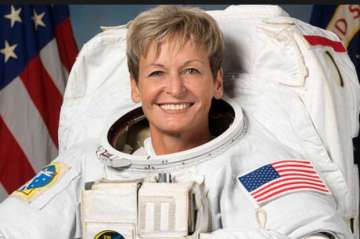NASA astronaut Peggy Whitson, who holds the record for maximum time spent in space by any American astronaut, is set to return to Earth on Saturday, completing a 288-day mission at the International Space Station.
Whitson and her Expedition 52 crewmates Jack Fischer of NASA and Fyodor Yurchikhin of the Russian space agency Roscosmos are scheduled to land in Kazakhstan at 9.22 p.m. EDT on Saturday (6.52 a.m. Sunday, India time).
At the time of their landing, she will have accrued a total of 665 days in space over the course of her career, more than any American astronaut, placing her eighth on the all-time space endurance list, NASA said.
Whitson's return will mark the end of her third long-duration stay onboard the space station.
She launched on November 17 with 377 days in space already under her belt, and on April 24 broke Jeff Williams' standing US record of 534 cumulative days in space.
Whitson also holds the record for most spacewalks by a female.
Yurchikhin and Fischer, who launched in April, will complete 136 days in space on their return. Yurchikhin will return to Earth with a total of 673 days in space on his five flights, putting him in seventh place on the all-time endurance list.
At the time of undocking, Expedition 53 will begin aboard the station under the command of Randy Bresnik.
Along with his crewmates Sergey Ryazanskiy of Roscosmos and Paolo Nespoli of ESA (European Space Agency), the three-person crew will operate the station until the arrival of three new crew members.
Mark Vande Hei and Joe Acaba of NASA and Alexander Misurkin of Roscosmos, are scheduled to launch on September 12 from Baikonur, Kazakhstan, NASA said.
Latest World News
